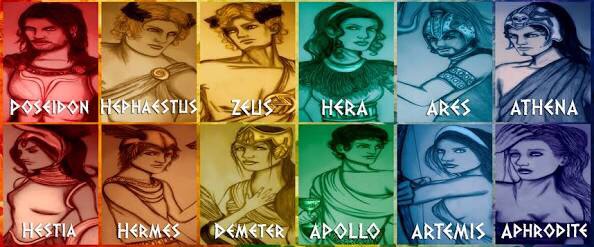The Twelve Olympians

The Twelve Olympians The twelve great Olympians were supreme among the gods who succeeded to the Titans. They were called the Olympians because Olympus was their home. What Olympus was, however, is not easy to say. There is no doubt that at first it was held to be a mountaintop, and generally identified with Greece's highest mountain, Mt. Olympus in Thessaly, in the northeast of Greece. But even in the earliest Greek poem, the Iliad, this idea is beginning to give way to the idea of an Olympus in some mysterious region far above all the mountains of the earth. In one passage of the Iliad Zeus talks to the gods from "the topmost peak of many-ridged Olympus," clearly a mountain. But only a little further on he says that if he willed he could...

